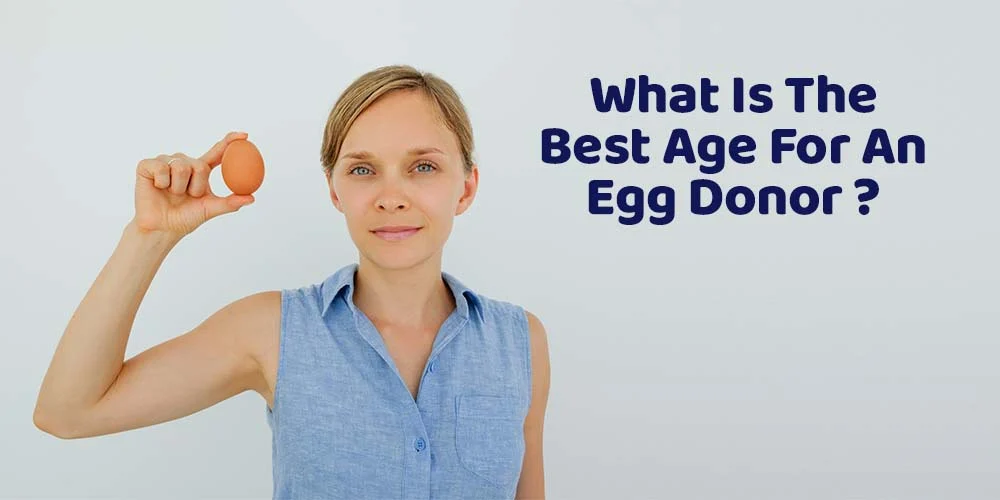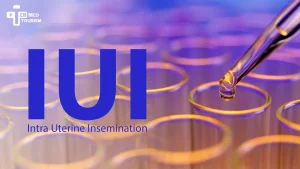Is there an age limit for egg donation?
The answer to this question is an absolute yes! The best age for an egg donor is not only a number, but also the best age for an egg donor is an age range of 21-31. However, why does age affect a woman’s fertility? It’s an important question, as age can significantly impact a woman’s ability to donate eggs. Recent studies have shown that as women age, their fertility begins to decline due to a decrease in their egg reserve and the quality of the eggs released. It means that the eggs released by women in their thirties may not be as viable as those released by women in their twenties. So there is an age limitation for egg donors. Women more or less than this range aren’t appropriate candidates for being a member of egg donor banks. Chromosomal abnormalities are more common in older egg donors As women age, their fertility decreases, making it more difficult for them to conceive. When a woman’s age increases, the risk of chromosomal abnormalities in her eggs increases, and these abnormalities can lead to severe diseases. It means that the chances of conceiving a child with a genetic disorder, such as Down Syndrome, increases with age, but Tay-Sachs disease and Cystic Fibrosis are also more likely to occur in older egg donors. Choosing a younger egg donor can significantly reduce the risk of conceiving a child with these conditions, making it a key factor in any egg donation decision. Choosing a younger egg donor at the best age for donating will decrease the risk of the above chromosomal issues and increase the chances of having a healthy baby via the IVF+ egg donation procedure.
Poor response to stimulation cycles in older egg donors
For those considering using the eggs of an older donor, there are additional risks that must be taken into account. An egg donor’s age can significantly impact the success of an egg retrieval procedure. So, it is vital having a special focus on age-related risks associated with using eggs from older donors. These risks can include a decrease in the number of follicles produced, a decreased response to stimulation cycles, and other issues that may affect the IVF success rate and lead to experiencing failed IVF cycles. Egg donors not at the best age for donating eggs conclude lower successful IVF pregnancies and, unfortunately, higher miscarriage rates.
Maximum age for egg donor
The maximum age for an egg donor is 31 years old, and in previous paragraphs, we discuss comprehensively why using older eggs is inappropriate for the egg donation process. The most important thing is the success rate of IVF; Utilizing old eggs over the best age for egg donors,21-31, via the IVF egg donation process reduces the IVF success rate incredibly. Such a situation leads the patient to experience repeated IVF cycles, paying a lot of money and disappointing! Therefore, please take seriously the advice of fertility specialists and do not insist unnecessarily on using older eggs!
Can I donate my eggs at age 38?
Generally, by considering the best age for egg donors, woman must be between the ages of 18 and 35 to donate eggs for her or someone else medical treatment. Clinics may only allow the use of oocytes from older women in exceptional cases; When donating to a family member. Overall, because of the two vital keys: chromosomal abnormalities and poor responses to stimulation cycles in older eggs, using old eggs belonging to donors over 35 doesn’t wait for a high IVF success rate and has to expect the failure of the IVF cycle.
Minimum age for egg donor | Can I donate eggs at 18?
The minimum age for an egg donor is 21. Many egg donors ask, “Can I sell my eggs at 18?”. All over the world, young women under 18, due to legal issues, could not enter into contracts. According to one article published in 2019, outcomes related to donors less than 25 are unfavorable. It means the number of live birth and IVF success rate is lower than expected. So this theory that as the egg donor is younger, the success rate is higher seeming not to be true in all cases!
What is the best age for an egg donor?
When it comes to donating an egg, the best age for donating eggs is between 21 and 31. Such a range limitation is because young women in this age range are mature enough to understand the significance and responsibility of egg donation. Also their donated egg quality. The best age for donating eggs is the age range in which young egg donors are more likely to understand the importance of their commitment. Despite the temptation to look for younger donors, research has shown that those under 21 may need more clarification on their commitment, leading to less favorable outcomes after in vitro fertilization. As we mentioned in previous paragraphs, using older women’s eggs via IVF procedure has special consideration, leading to additional risks that are better to consider.
Relationship between age and egg donation success rate
The likelihood of conceiving a child using a donor egg may be much higher than conceiving a child using an IVF procedure that uses your eggs. Age, genetics and other medical problems affect egg quality and egg quality effect on IVF success rate and leads failed IVF cycle. Donor eggs might eliminate these factors, and confident women, particularly those with low egg quality or quantity, will experience a better success rate if they undertake IVF using donor eggs. On the other hand, In vitro fertilization (IVF) is a multi-step process, and each stage has a specific success rate. However, it can be challenging to consider all the many factors that may exist for each donor and recipient.
Overcoming Age-related factors
Using donor eggs at the best age for donating eggs will increase IVF success rate. How choosing young and healthy eggs of egg donors can overcome all IVF complications? IVF success rate via the egg donation process is an important topic to discuss when it comes to increasing the chances of a successful IVF cycle. Choosing young and healthy eggs of egg donors is essential to achieving a successful IVF cycle, as it has the potential to overcome all IVF complications. In the following paragraphs on TebMedTourism, we will look at the IVF success rate via the egg donation process can be improved by selecting young and healthy eggs egg donors, how such selection, egg donors are at the best age for donating eggs, can help to overcome all IVF complications, and ultimately lead to an increased chance of a successful IVF cycle.
Overcoming low egg quality and ovarian issues
Using an egg donor to maximize your IVF success rate is an excellent option for those with ovarian issues or age-related factors. For example, suppose your doctor has informed you of your diminished ovarian reserve or poor egg quality. In that case, the utilization of a donor can significantly increase your chances of a successful IVF cycle due to their younger age and correspondingly higher egg count and quality. The egg donation process is very hopeful if the woman is diagnosed with premature ovarian insufficiency (POI), as egg donation may be the only option for such individuals to become pregnant. drastically increase the success rate. According to the latest researchers, women under 30 that are in the best age for egg donors, possess an impressive success rate of 50 percent per IVF cycle. In contrast, the rate for those over 40 is significantly lower-level, ranging from 5 to 20 percent. Thus, the younger age of an egg donor provides extra rise to IVF success rates towards the higher end of the spectrum. Additionally, those couples with genetic disorders can rest assured, as using donor eggs provides them with an advanced method, called PGD, of avoiding the potential of passing such genetic disorders down to their offspring.
TebMedTourism egg donor database
Are you considering an IVF cycle and looking for the best egg donors to maximize your chances of success? Finding a reputable egg donor agency with powerful egg donor database, like TebMedTourism, that offers quality egg donors is essential for a successful IVF cycle. At such a well-skilled and professional agency, all egg donors are at the best age for donating eggs and are thoroughly screened to ensure that their ovarian reserve capabilities and genetic profiles (medical history and family overview) meet the requirements for a successful IVF cycle. With suitable egg donors, you can be confident that you won’t have to worry about potential complications. So, you can rest assured that your IVF cycle will go as smoothly as possible. With us, you can be sure that you are getting the best egg donors to help you achieve your dream of starting a family via using TebMedTourism egg donor bank.
Learn more:All about Egg donation in Iran














